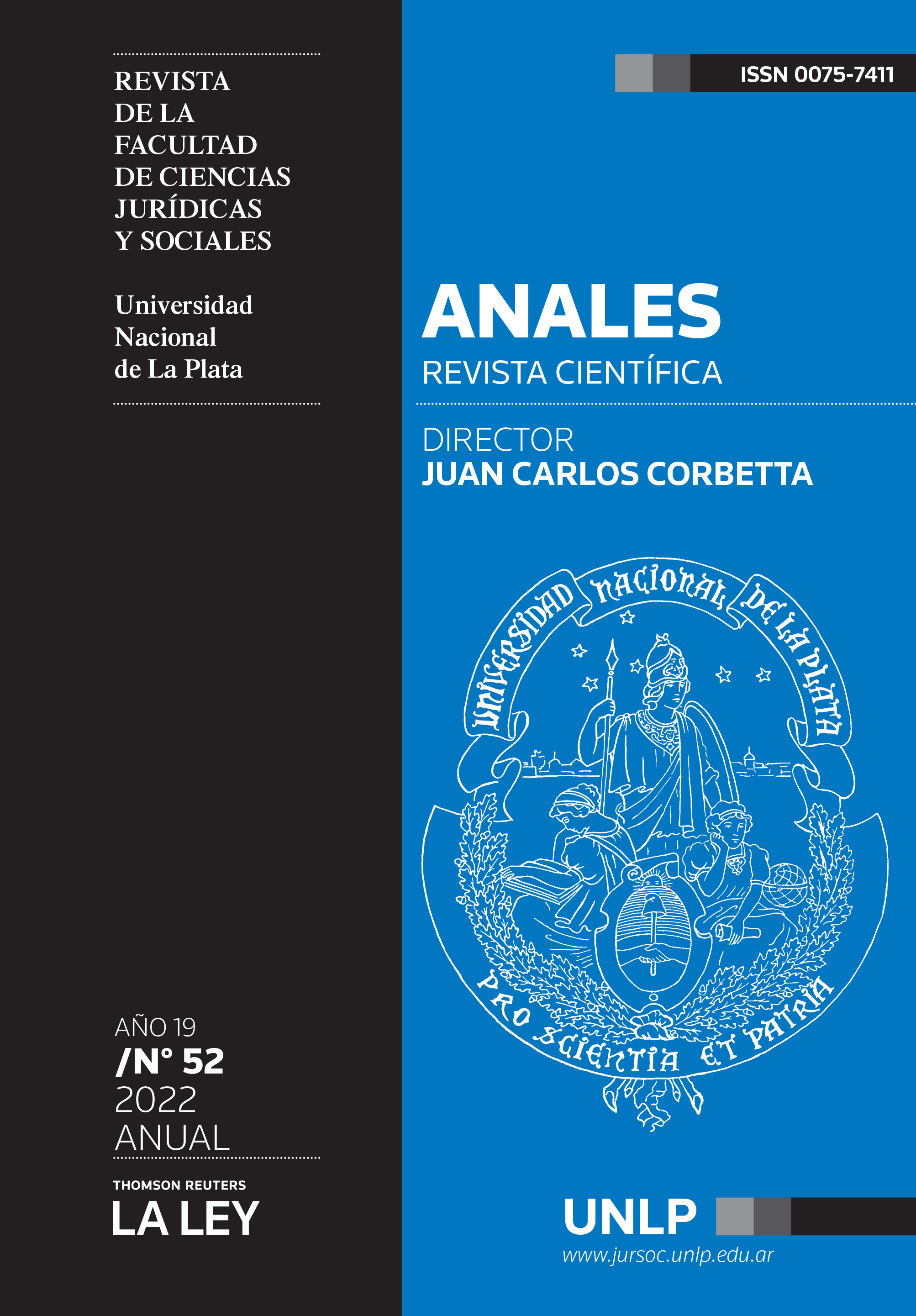The fault: An error of unlawful causality
DOI:
https://doi.org/10.24215/25916386e109Keywords:
guilt, unlawfulness, causality, civil liabilityAbstract
The analysis of the concept of guilt in its historical development has been a subject of continuous debate and study for authorial legal doctrine of all times and places, reaching its maximum expression, in the modern Theory of Responsibility, of inconceivable development without it. Guilt has, therefore, configured one of the great achievements of ancient legal thought, since it has explained the legal reasons why a certain conduct is reprehensible, ergo, attributable to the obligation to repair, whether the damage caused (responsibility compensation), or the risk created that damage occurs, continues, or worsens (preventive liability). Thus, its genesis and conceptual evolution; its different evaluation criteria; its close logical connection with the objective elements of unlawfulness and causality; assumptions of presumption of its existence; his proof and the reversal of his burden. All of which has made guilt one of the most valid and interesting ideas in Legal Sciences, from the famous "Lex Aquilia", through Book IX of the Digest, to our current Civil and Commercial Code of the Nation.
Downloads
References
Adorno, T. W. (2001). Epistemología y ciencias sociales. Madrid: Cátedra.
Bertolini, F. (1972). Historia de Roma, T° I. Roma: Ed. del Consejo Superior de Instrucción Pública de Italia.
Bonfante, P; Ferrini, C; Fadda, C; Ricobbonno, R y Scialoja, G (1931). Digesta Iustiniani Augusti. Milano: Valliardi.
Cornaglia, R. J. (1992). Derecho de Daños Laborales. Buenos Aires: Némesis.
Cornaglia, R. J. (2018). La obligación contractual de resultado en la ley de riesgos 24557. Revista de Derecho Laboral y Seguridad Social (p. 1963). Buenos Aires: Lexis Nexis
Di Pietro, A. (2014). Imperio y Derecho. La Plata: UCALP.
Echevesti, C. (1997). La culpa: Teoría general. Buenos Aires: Hammurabi.
Ghirardi, J. C. (2004). Síntesis conceptual sobre la evolución del concepto de daño (“damnum iniuria datum”; daño injustamente causado) y la responsabilidad extracontractual en el derecho Romano. Anuario de Derecho Civil, N° 9 (pp. 121-129). Argentina: Universidad Católica de Córdoba.
Medina, G. L. (2019). La responsabilidad en el Código Civil y Comercial de la Nación: La violación al deber de no dañar. Revista Anales de la Facultad de Ciencias Jurídicas y Sociales de la Universidad Nacional de La Plata, N°49. Buenos Aires: La Ley.
Medina, G. L. (2022). La responsabilidad civil como causa fuente de la obligación de reparar. La Defensa. IDEL. FACA. Nro. LXX. 2022. Buenos Aires.
Picasso, S. (2013). La antijuricidad en el Proyecto de Código. La Ley 2013-E. Cita Online: AR/DOC/3184/2013.
Polibio (2000). Historia universal bajo la república romana. T° I. Madrid: El Aleph.
Rivera, J. C. (2004). Instituciones de Derecho Civil: Parte general, 3ra. Ed. Buenos Aires: Abeledo Perrot.
Wayar, E. (2004). Derecho Civil: Obligaciones, 2da. Ed. Buenos Aires: Depalma.
Published
How to Cite
Issue
Section
License
Copyright (c) 2022 Gastón L. Medina

This work is licensed under a Creative Commons Attribution-NonCommercial-NoDerivatives 4.0 International License.
Esta licencia no permite la generación de obras derivadas ni hacer un uso comercial de la obra original, es decir, sólo son posibles los usos y finalidades que no tengan carácter comercial.






























